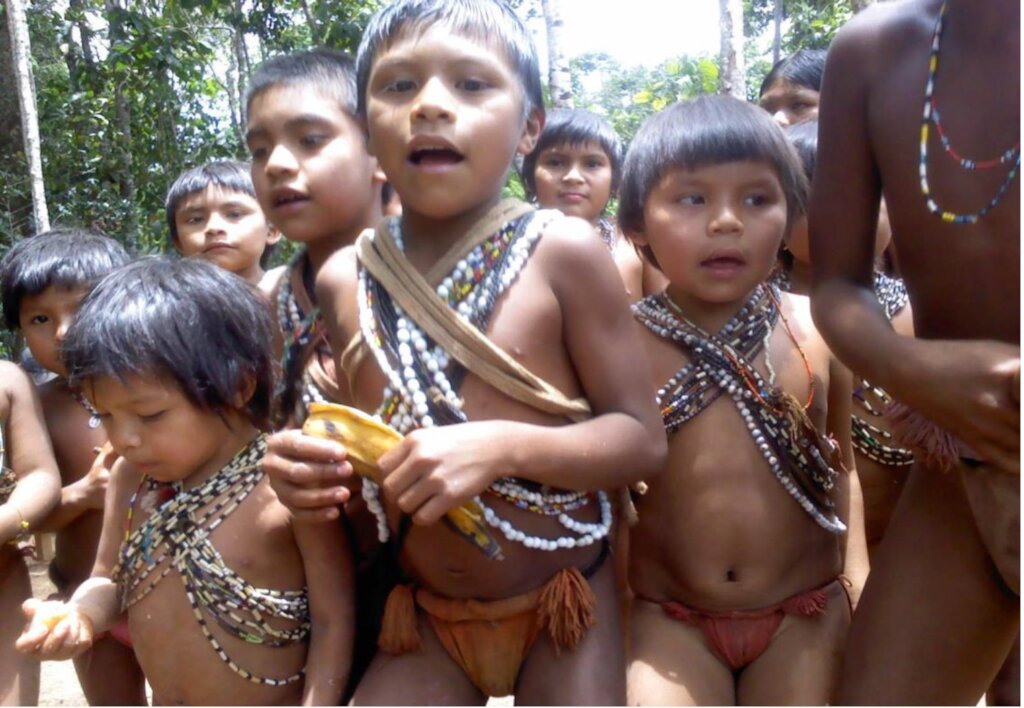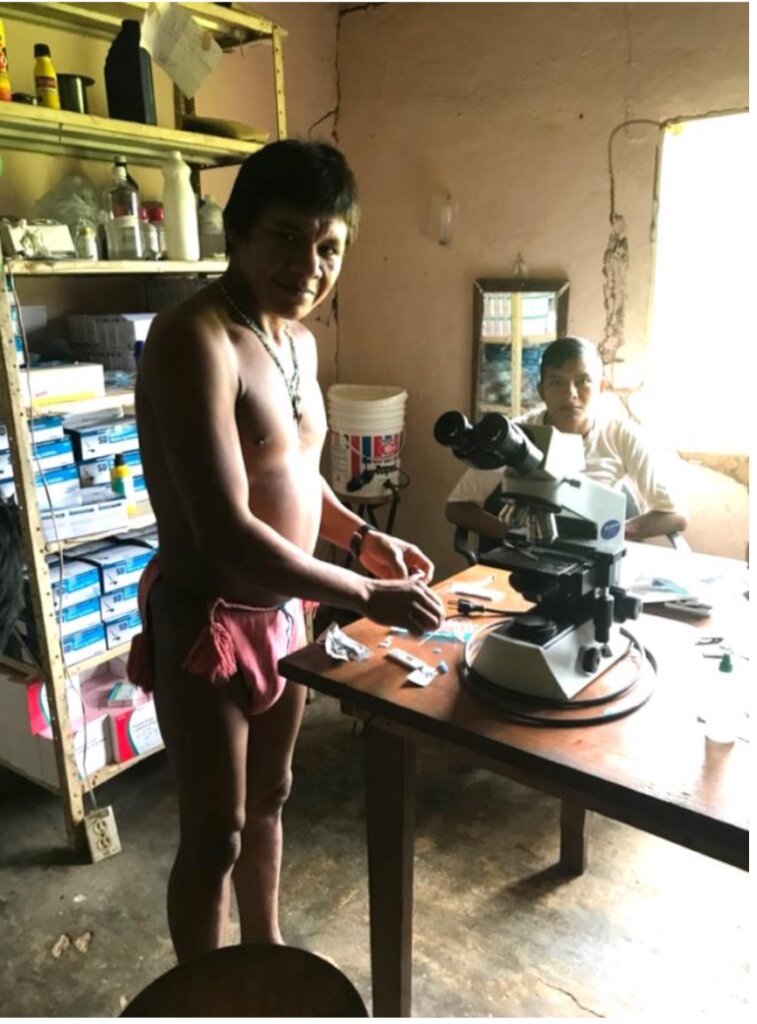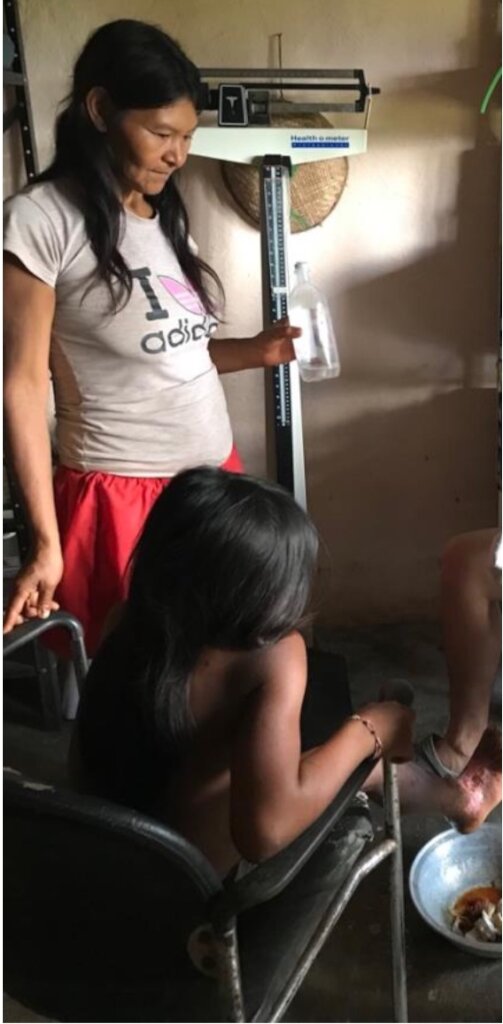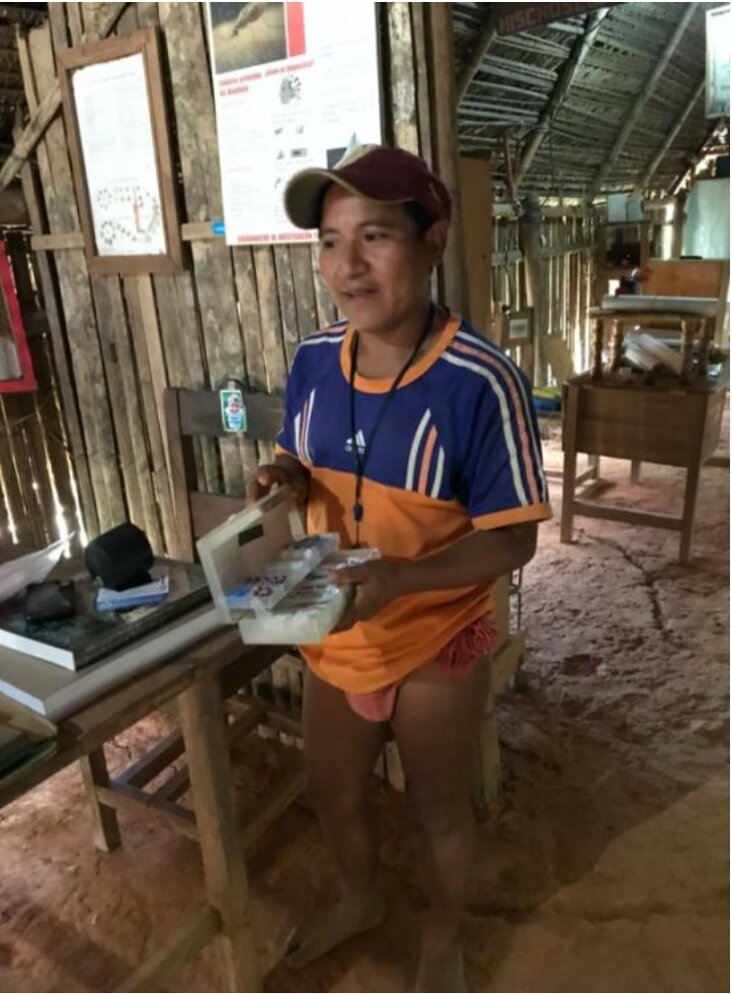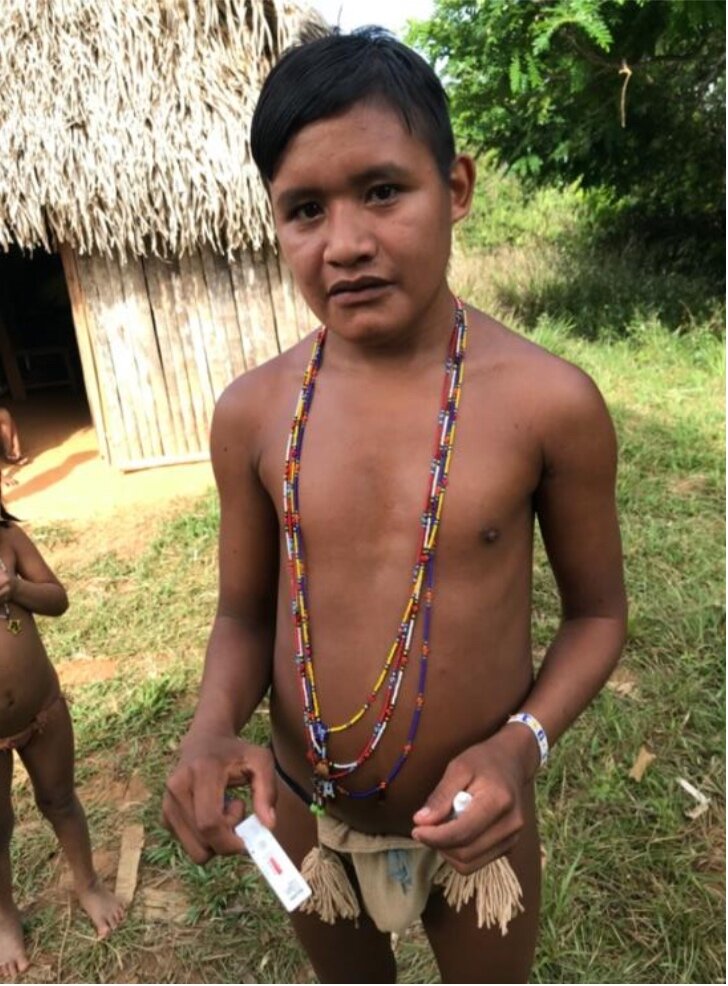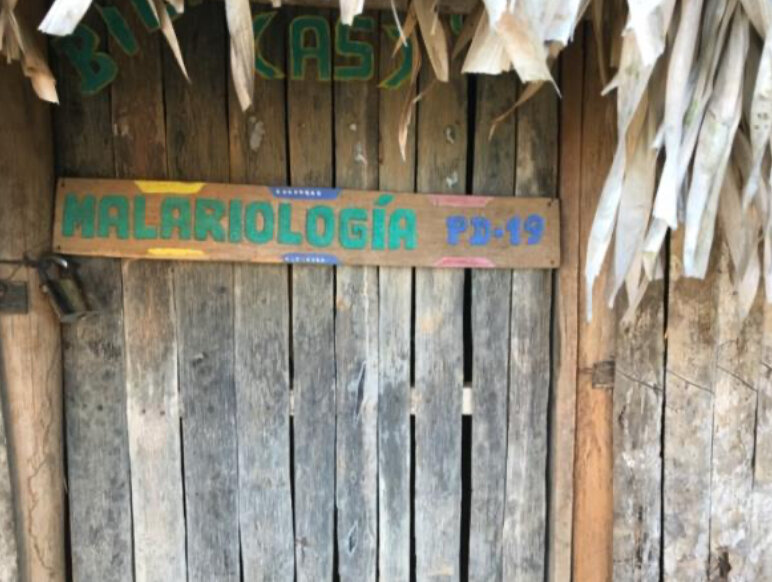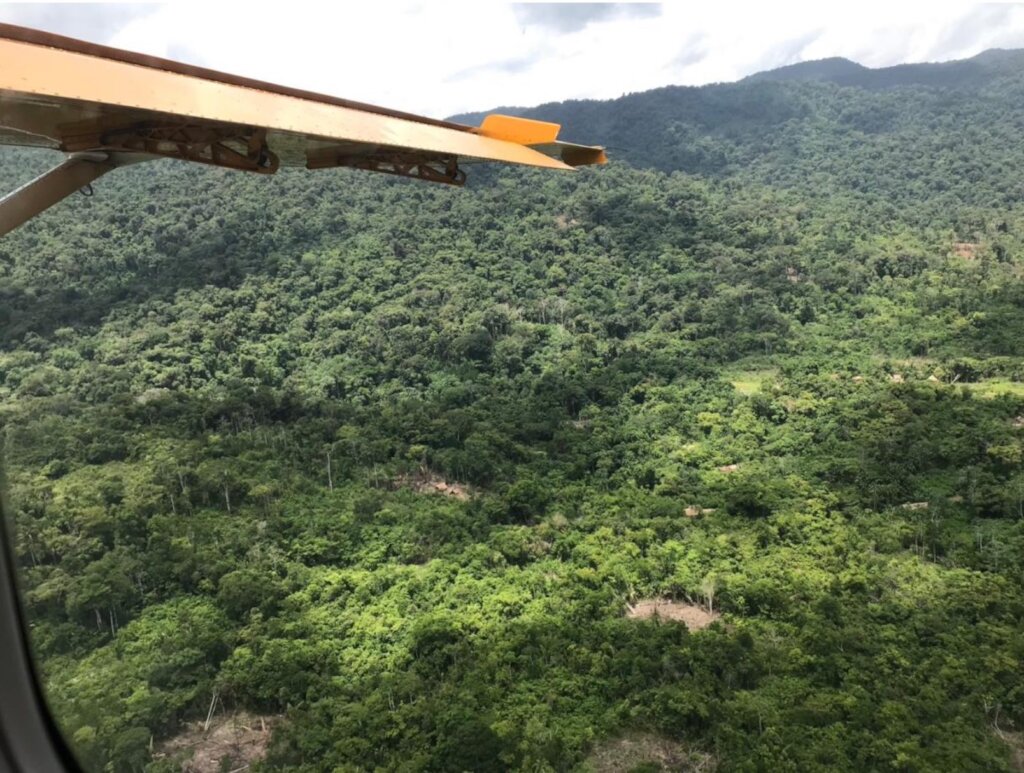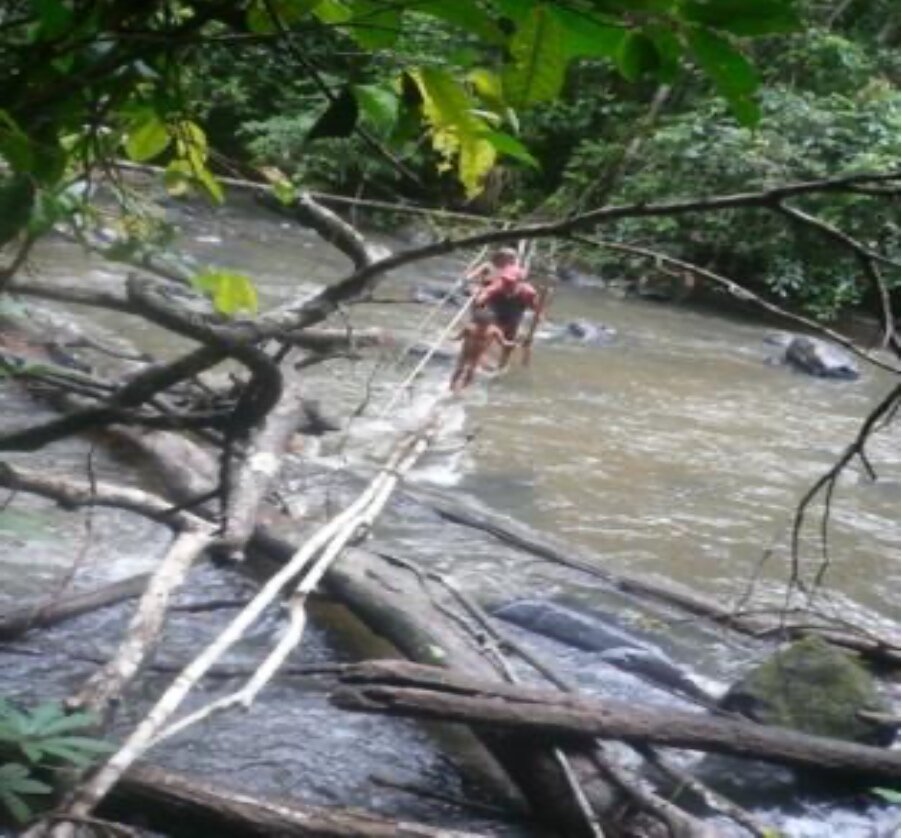By Dr. Susannah McCandless | Project Administrator
This report celebrates a continued burst of project activity, enabled by your generous gifts and by close collaboration with old and new partners. In early May 2022, we collaborated to divide the eye-popping USD $13,000 cost of drop-off and pickup by small cargo plane in the Jotï community of Jkalo Ijkuala, or Caño Iguana, with the project of longtime partner and medical advisor, Oscar.
In my previous dispatch, I'm afraid I underreported by half the number of portable kits for rapid malarial diagnosis and treatment the project distributed in Kayamá in late March 2022. So, I wanted to make sure to get my figures right for today’s report, focused on the project's visit to Caño Iguana and census efforts in both communities. I reached out to project leaders Egleé and Stanford just as they arrived in Venezuela. Via WhatsApp, Egleé shared the following succinct report on the project's May 2022 work:
Digging into that May 2022 report to UNICEF’s lead in the region, I found it was co-authored by the dedicated doctor, the leaders of this project, and local community health personnel, along with members of the Caño Iguana and Kayamá indigenous communities, who sent back with Egleé and Stanford a series of letters asserting their communities’ needs in different arenas.
The report is titled, “Current situation of vulnerability of children and adolescents of the Jotï/Jotö indigenous communities of Caño Iguana and Kayamá, especially associated with their identity [documentation necessary to access legal rights and government services], health and education rights”. It emphasizes the status of the Jotï as the most recently contacted people in Venezuela (December 1969). The document combines newly updated census figures carefully detailing Jotï presence, with a description of their lifeways. It details their most pressing needs, especially after 3 years of school closure. I leave you with this excerpt translated from the report, and our thanks!
_____
“1. Caño Iguana is the community focus of a [total] indigenous population of 681 inhabitants, according to the census prepared by Ricardo [pictured below], Jairo ____, Lucia ____, Egleé ___ and Balujwe ___, in May 2022. This population is concentrated in 24 sectors, exhibiting a pattern of mobile and dynamic settlement by virtue of ecological and cultural factors. The most numerous sectors are Jkalo Ijkuala (Caño Iguana) with 153 inhabitants and Morocoto with 143, which is located 12 hours away, although they have river access.
“2. Kayamá is also the community focus of 889 Jotï according to the census carried out by Alirio [pictured below] in May 2022. Far from settling in a nucleated manner, the population of the Kayamá region is organized into two sectors, Baejka with 472 people and Maykou with 417 people, however, each sector is made up of a series of sub-sectors that occupy regions in flexible and deconcentrated ways, in groups of 3 to 23 families and 13 to 115 people, the most numerous being Jkwan Jkyewi in Mayjou and Jkyeo Wa in Baejka.
“It is worth noting that this way of occupying space is flexible but consistent with harmonious, supportive and mutually caring ways of living with each other, where the values of solidarity, peace and love are the fundamental pillars of life, and where sharing is the central strategy to reproduce and maintain themselves, especially for those who have some type of lack, beyond family ties."
____
I've included a numbers of photos from the report to UNICEF, as detailed below:
Cover photo of this report: Kayamá school students in 2018, photo by Gerardo
2. Microscopist Ricardo in Caño Iguana dispensary, May 2022. Photo by Egleé
3. Caño Iguana clinic personnel treat a foot injury, May 2022. Photo by Egleé
4. & 5. Kayamá Community health leaders Alirio and Luis Eduardo, March 2022. Photo by Egleé
6. 'Malariaología' - Center for malarial diagnostics at the Kayamá clinic, March 2022. Photo by Egleé
6. Caño Iguana, an Amazonian forest community, May 2022. Photo by Egleé
6. Crossing a handmade bridge, to head towards the sector where a boy who had lost his lower right limb due to a snake bite was found, May 2022. Photo: Doctor who treated the child
By Susannah McCandless, reporting for Dr. Eglee Zent | Project Leaders
By Dra. Eglee Zent, with Dr. Susannah McCandless | Project Leader
Project reports on GlobalGiving are posted directly to globalgiving.org by Project Leaders as they are completed, generally every 3-4 months. To protect the integrity of these documents, GlobalGiving does not alter them; therefore you may find some language or formatting issues.
If you donate to this project or have donated to this project, you can receive an email when this project posts a report. You can also subscribe for reports without donating.
Support this important cause by creating a personalized fundraising page.
Start a Fundraiser